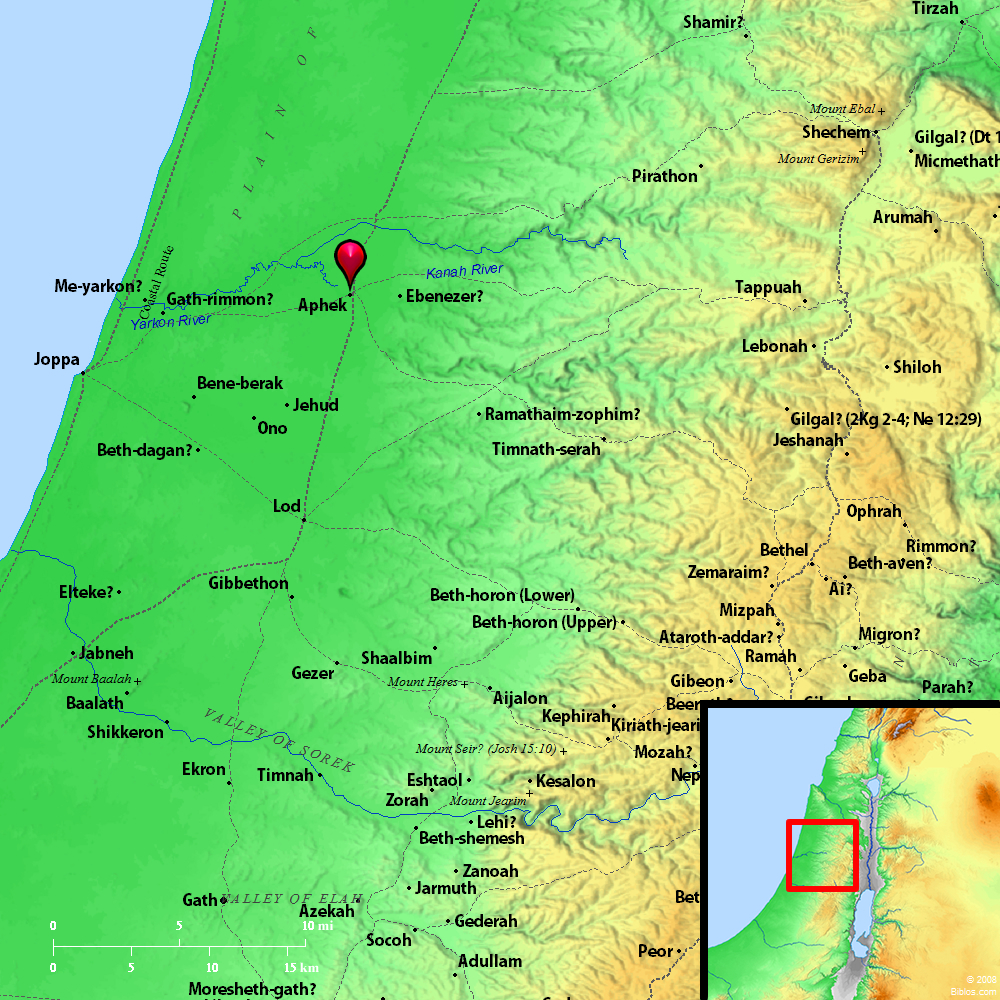Atlas

Aphek 2 and surrounding region
Maps Created using Biblemapper 3.0Additional data from OpenBible.infoOccurrences
Joshua 12:18 the king of Aphek, one; the king of Lassharon, one;
1 Samuel 4:1 The word of Samuel came to all Israel. Now Israel went out against the Philistines to battle, and encamped beside Ebenezer: and the Philistines encamped in Aphek.
1 Samuel 29:1 Now the Philistines gathered together all their armies to Aphek: and the Israelites encamped by the spring which is in Jezreel.
Encyclopedia
APHEKa'-fek ('apheq, "fortress"; Aphek):
(1) In Joshua 12:18 we should probably read with the Septuagint "the king of Aphek in Sharon." This may correspond to Aphek in 1 Samuel 4:1. It was a royal city of the Canaanites whose king was slain by Joshua. Probably it is the Aphek mentioned by Josephus as being near to Antipatris (BJ, II, xix, 1). Kakon, a strong position commanding the main entrance to Samaria might suit; but the name has perished.
(2) (Greek Taphek or Apheka): A city in the lot of Asher (Joshua 13:4). The inhabitants were not ejected by Asher, nor is it said that they became tributary (Judges 1:31). In this passage it is written 'aphiq (Hebrew). It may be represented by 'Afqa on Nahr Ibrahim, although this is probably farther north than we should expect.
(3) To this place the Philistines gathered their hosts, while the Israelites pitched by the fountain which is in Jezreel (1 Samuel 29:1). It has been generally supposed that these two positions were over against each other, and that therefore Aphek must be sought in the plain of Esdraelon. No place answering this description has been found here. Fuqu`ah on Mount Gilboa is plainly impossible. If, however, this was only the rallying point of the Philistines from which they went up to Jezreel (1 Samuel 29:11), it may be identical with the Aphek in the plain of Sharon (compare 1 Samuel 29:1 above).
(4) A city on the plateau east of the Jordan, where disaster befell Benhadad (1 Kings 20:26, 30). The same place may be intended in 2 Kings 13:17. The modern Fiq or Afiq (for both forms are heard) on the brow of the hill beyond Qal`at el-Chucn, east of the Sea of Galilee, probably represents this ancient city.
W. Ewing




